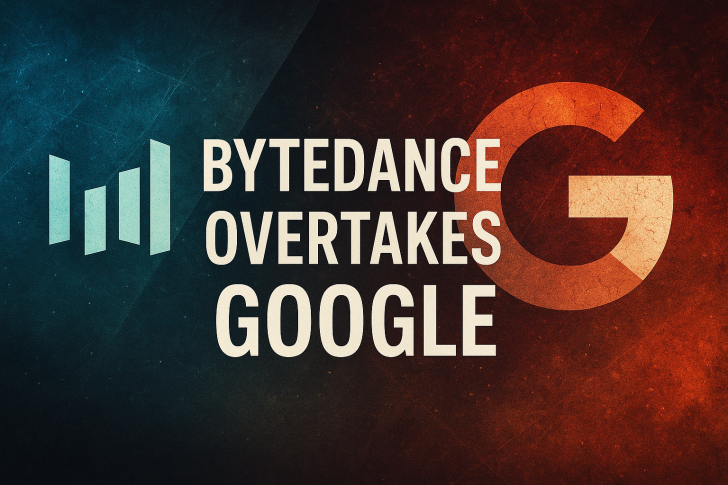The race for AI supremacy just got more interesting. ByteDance, the company behind TikTok, has quietly launched Seedream 4.0, an AI image generator that's now outperforming Google's offerings.
ByteDance's Unexpected Lead
According to AI commentator Santiago, this marks a pivotal moment where a Chinese company has taken the lead in a field long dominated by American tech giants.
ByteDance isn't typically the first name that comes to mind when discussing cutting-edge AI research. Most people know them for TikTok's addictive algorithm. But their latest release tells a different story. Seedream 4.0, available through their Dreamina platform, has become the top-rated text-to-image generator, beating out Google's Nano Banana.
What makes this version stand out? The images it produces are sharper and more realistic than previous iterations. It understands what users actually want from their prompts, translating vague descriptions into surprisingly accurate visuals. And unlike some AI tools that slow to a crawl when too many people use them at once, Seedream handles traffic smoothly. These aren't just incremental improvements, they represent a genuine leap forward that puts ByteDance in direct competition with Silicon Valley's biggest players.
What This Means for the AI Arms Race
This isn't just about one company beating another at a technical benchmark. It's part of a larger pattern. While American firms like OpenAI and Google have dominated headlines with their language models, Chinese companies have been making serious progress in creative AI applications. ByteDance has a massive advantage here: direct access to hundreds of millions of users through platforms like TikTok and Dreamina. That means instant feedback, rapid iteration, and real-world testing at a scale few Western companies can match.
The geopolitical implications are hard to ignore. For years, the narrative has been that China is playing catch-up in AI. Seedream 4.0 suggests that narrative needs updating. In some areas, Chinese firms aren't just catching up anymore, they're pulling ahead. This shift could influence everything from tech investment to international policy around AI development and deployment.
 Peter Smith
Peter Smith

 Peter Smith
Peter Smith


